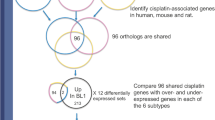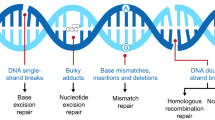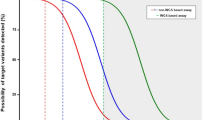Opinion statement
Metastatic (and locally advanced) pancreatic adenocarcinoma (mPDA) represents a major challenge for the oncology community given the rising mortality burden from the disease and the preponderance of patients diagnosed with unresectable disease. Although systemic therapies have become more potent with the development of fluorouracil, irinotecan, and oxaliplatin (FOLFIRINOX) and gemcitabine plus nab-paclitaxel as first-line treatments, the median overall survival for patients treated with either of these regimens remains just above 1 year. A significant need exists to build upon the effectiveness of first-line regimens, incorporate tolerable maintenance treatments, and add effective later-line options for patients with this disease. We believe every newly diagnosed mPDA patient should undergo next-generation sequencing (NGS) testing, preferably from tumor tissue, to assess for the presence of DNA damage repair (DDR) defects, microsatellite instability, and other possible actionable molecular alterations (such as neurotrophic tropomysin receptor kinase (NTRK) fusions, anaplastic lymphoma kinase (ALK) rearrangements, or human epidermal growth factor receptor 2 (HER2) amplification). Existing clinical data suggests that patients, whose tumors harbor DDR defects, benefit from treatment with platinum-based chemotherapy and poly (ADP-ribose) polymerase (PARP) inhibitors. Preclinically, inhibitors of other critical players in DDR such as ataxia-telangiectasia and Rad3 related (ATR), ataxia-telangiectasia mutated (ATM), DNA-dependent protein kinase (DNA-PK), and WEE1 have demonstrated promising anti-tumor activity in PDA cell lines and xenografts. How to move forward the preclinical promise of these newer DDR-targeting therapies into rational clinical trial combinations and sequence PARP inhibitors in relation to platinum chemotherapy remain areas of tremendous clinical research interest. We believe clinical trials should be considered early for mPDA patients, in all treatment lines, so that novel therapies may be added to the treatment armamentarium for patients with this disease. Beyond NGS testing from tumor tissue, we believe it is important to consider germline genetic testing for all patients diagnosed with PDA given recent data suggesting a much stronger hereditary component of the disease than previously understood, and the potential screening implications for family members.

Similar content being viewed by others
References and Recommended Reading
Papers of particular interest, published recently, have been highlighted as: • Of importance •• Of major importance
Gettinger S, Horn L, Jackman D, Spigel D, Antonia S, Hellmann M, et al. Five-year follow-up of nivolumab in previously treated advanced non–small-cell lung cancer: results from the CA209-003 study. J Clin Oncol. 2018;36(17):1675–84.
Hamid O, Robert C, Daud A, et al. Five-year survival outcomes for patients with advanced melanoma treated with pembrolizumab in KEYNOTE-001. Ann Oncol. 2019. https://doi.org/10.1093/annonc/mdz011.
Ascieto PA, Long GV, Robert C, et al. Survival outcomes in patients with previously untreated BRAF wild-type advanced melanoma treated with nivolumab therapy: three-year follow-up of a randomized phase 3 trial. JAMA Oncol. 2018;5(2):187–94.
Motzer R, Escudier B, McDermott D, George S, Hammers HJ, Srinivas S, et al. Nivolumab versus everolimus in advanced renal-cell carcinoma. N Engl J Med. 2015;373:1803–13.
Rini B, Plimack E, Stus V, Gafanov R, Hawkins R, Nosov D, et al. Pembrolizumab plus axitinib versus sunitinib for advanced renal-cell carcinoma. N Engl J Med. 2019;380:1116–27.
Nghiem P, Bhatia S, Lipson E, et al. PD-1 blockade with pembrolizumab in advanced Merkel-cell carcinoma. N Engl J Med. 2016;374:2542–52.
Reck M, Rodriguez-Abreu D, Robinson A, et al. Pembrolizumab versus chemotherapy for PD-L1–positive non–small-cell lung cancer. N Engl J Med. 2016;375:1823–33.
•• Le D, Durham J, Smith K, et al. Mismatch-repair deficiency predicts response of solid tumors to PD-1 blockade. Science. 2017;57(6349):409–13 A seminal article which suggested the predictive power of microsatellite instability-high tumor status, across tumor histology, to predict benefit from the checkpoint inhibitor pembrolizumab.
Royal RE, Levy C, Turner K, Mathur A, Hughes M, Kammula US, et al. Phase 2 trial of single agent Ipilimumab (anti-CTLA-4) for locally advanced or metastatic pancreatic adenocarcinoma. J Immunother. 2010;33:828–33.
SEER Database 2019. https://seer.cancer.gov/statfacts/html/pancreas.html.
•• Pishvaian M, Blais E, Brody J, et al. Outcomes in pancreatic adenocarcinoma (PDA) patients (pts) with genetic alterations in DNA damage repair (DDR) pathways: results from the Know Your Tumor (KYT) program. J Clin Oncol. 2019;37(4):S191 An important publication suggesting that DDR mutations are more prevalent in PDA than previously thought and furthermore, that DDR mutations in tumors predict sensitivity to platinum chemotherapy.
Heeke A, Pishvaian M, Lynce F, et al. Prevalence of homologous recombination–related gene mutations across multiple cancer types. JCO Precis Oncol. 2018. https://doi.org/10.1200/PO.17.00286.
Dreyer S, Paulus-Hock V, Upstill-Goddard R, et al. Defining DNA damage repair deficiency and replication stress in pancreatic cancer. J Clin Oncol. 2019;37(4):S285.
Schroff R, Hendifar A, McWilliams R, et al. Rucaparib monotherapy in patients with pancreatic cancer and a known deleterious BRCA mutation. J Prescis Oncol. 2018. https://doi.org/10.1200/PO.17.00316.
•• Golan T, Varadhachary G, Sela T, et al. Phase II study of olaparib for BRCAness phenotype in pancreatic cancer. J Clin Oncol. 2018;36(4):S297 An important study which sought to expand the role of PARP inhibitors to PDA patients beyond those with germline BRCA mutations. Preliminary results from this study suggest that PARP inhibitors have a role in PDA tumors with somatic mutations in other DDR genes.
•• Reiss Binder K, Mick R, O’Hara M, et al. CT234 - a phase II, single arm study of maintenance rucaparib in patients with platinum-sensitive advanced pancreatic cancer and a pathogenic germline or somatic mutation in BRCA1, BRCA2 or PALB2. Cancer Discov. 2019. https://doi.org/10.1158/2159-8290.CD-NB2019-043 An important study which suggested the biggest benefit of PARP inhibitors in mPDA patients may be in the platinum chemotherapy sensitive setting. The study also included patients beyond those with just germline BRCA mutations.
Perkhofer L, Illing A, Gout J, et al. Precision medicine meets the DNA damage response in pancreatic cancer. Oncoscience. 2018;5(1–2):6–8.
Wallez Y, Dunlop CR, Johnson TI, Koh SB, Fornari C, Yates JWT, et al. The ATR inhibitor AZD6738 synergizes with gemcitabine in vitro and in vivo to induce pancreatic ductal adenocarcinoma regression. Mol Cancer Ther. 2018;17(8):1670–82.
Estrada-Bernal A, Chatterjee M, Hague SJ, et al. MEK inhibitor GSK1120212-mediated radiosensitization of pancreatic cancer cells involves inhibition of DNA double-strand break repair pathways. Cell Cycle. 2015;14(23):3713–24.
Kaufman B, Shapira-Frommer R, Schmutzler R, et al. Olaparib monotherapy in patients with advanced cancer and a germline BRCA1/2 mutation. J Clin Oncol. 2015;33(3):244–50.
Hopkins T, Ainsworth W, Ellis P, et al. PARP1 Trapping by PARP inhibitors drives cytotoxicity in both cancer cells and healthy bone marrow. Mol Cancer Res. 2019. https://doi.org/10.1158/1541-7786.MCR-18-0138.
Lowery MA, Kelsen DP, Capanu M, Smith SC, Lee JW, Stadler ZK, et al. Phase II trial of veliparib in patients with previously treated BRCA-mutated pancreas ductal adenocarcinoma. Eur J Cancer. 2018;89:19–26.
•• Golan T, Hammel P, Reni M, et al. Maintenance olaparib for germline BRCA-mutated metastatic pancreatic cancer. N Engl J Med. 2019. https://doi.org/10.1056/NEJMoa1903387 A practice-changing study which demonstrated the benefit of PARP inhibitors in the platinum sensitive maintenance setting for germline BRCA mutant mPDA patients in a randomized clinical trial. This study garnered olaparib an FDA indication for maintenance therapy.
• Moore K, Colombo N, Scambia G, et al. Maintenance olaparib in patients with newly diagnosed advanced ovarian cancer. N Eng J Med. 2018;379:2495–505 An important paper describing the activity of PARP inhibitors in ovarian cancer. The activity of olaparib in this study should be contrasted with the activity of the agent in pancreatic adenocarcinoma.
Litton J, Rugo H, Ettl J, et al. Talazoparib in patients with advanced breast cancer and a germline BRCA mutation. N Engl J Med. 2018;379:753–63.
Yarchoan M, Myzak MC, Johnson BA, et al. Olaparib in combination with irinotecan, cisplatin, and mitomycin C in patients with advanced pancreatic cancer. Oncotarget. 2017;8(27):44073–81.
O’Reilly EM, Lee JW, Lowery MA, et al. Phase 1 trial evaluating cisplatin, gemcitabine, and veliparib in 2 patient cohorts: Germline BRCA mutation carriers and wild-type BRCA pancreatic ductal adenocarcinoma. Cancer. 2018;124(7):1374–82.
•• O’Reilly EM, Lee JW, Zalupski M, et al. Randomized, multicenter, phase ii trial of gemcitabine and cisplatin with or without veliparib in patients with pancreas adenocarcinoma and a germline BRCA/PALB2 mutation. J Clin Oncol. 2020. https://doi.org/10.1200/JCO.19.02931 An important study demonstrating the viability of gemcitabine plus cisplatin in PDA patients with germline deficits in BRCA and PALB2. This study also suggested that though veliparib increased RR when combined with gemcitabine plus cisplatin in patients, it did not improve survival outcomes.
Pishvaian M, Wang H, Parenti S, et al. A phase I/II study of veliparib (Vel) in combination with 5-FU and oxaliplatin (FOLFOX) in patients with metastatic pancreatic cancer (mPDAC). J Clin Oncol. 2019;37(15):S4015.
• Marechal A, Zou L. DNA damage sensing by the ATM and ATR kinases. Cold Spring Harb Perspect Biol. 5(9):a012716 A review which highlights the critical stimuli which trigger ATR and ATM along with the mechanisms and targets of the DDR-coordinating kinases.
Dreyer S, Paulus-Hock V, Lampraki EM, et al. Defining DDR defectiveness in pancreatic cancer. J Clin Oncol. 2017;35(suppl;abstr 4115).
Morton J, Timpson P, Karim S, et al. Mutant p53 drives metastasis and overcomes growth arrest/senescence in pancreatic cancer. Proc Natl Acad Sci U S A. 2010;107(1):246–51.
Lal S, Zarei M, Chand S, et al. WEE1 inhibition in pancreatic cancer cells is dependent on DNA repair status in a context dependent manner. Sci Rep. 2016;6:33323.
Burki T. AZD1775 plus chemoradiotherapy for pancreatic cancer. Lancet Oncol. 2019;20(9):e472.
Author information
Authors and Affiliations
Corresponding author
Ethics declarations
Conflict of Interest
Satya Das and Dana Cardin declare they have no conflict of interest.
Human and Animal Rights and Informed Consent
This article does not contain any studies with human or animal subjects performed by any of the authors.
Additional information
Publisher’s note
Springer Nature remains neutral with regard to jurisdictional claims in published maps and institutional affiliations.
This article is part of the Topical Collection on Upper Gastrointestinal Cancers
Rights and permissions
About this article
Cite this article
Das, S., Cardin, D. Targeting DNA Damage Repair Pathways in Pancreatic Adenocarcinoma. Curr. Treat. Options in Oncol. 21, 62 (2020). https://doi.org/10.1007/s11864-020-00763-7
Published:
DOI: https://doi.org/10.1007/s11864-020-00763-7




